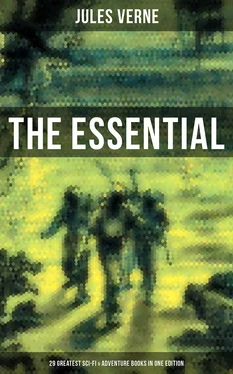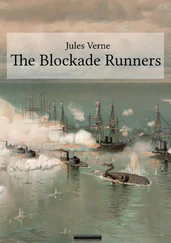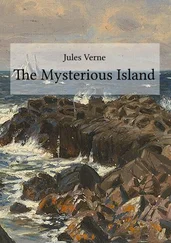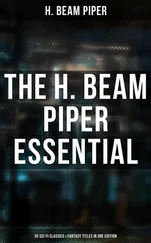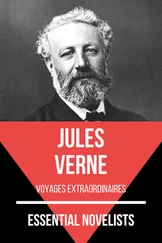Then Nicholl, in a rage, offered to expose his armour-plate to the shock of any kind of projectile, solid, hollow, round, or conical.
The president, who was determined not to compromise his last success, refused.
Nicholl, excited by this unqualified obstinacy, tried to tempt Barbicane by leaving him every advantage. He proposed to put his plate 200 yards from the gun. Barbicane still refused. At 100 yards? Not even at 75.
“At 50, then,” cried the captain, through the newspapers, “at 25 yards from my plate, and I will be behind it.”
Barbicane answered that even if Captain Nicholl would be in front of it he would not fire any more.
On this reply, Nicholl could no longer contain himself. He had recourse to personalities; he insinuated cowardice—that the man who refuses to fire a shot from a cannon is very nearly being afraid of it; that, in short, the artillerymen who fight now at six miles distance have prudently substituted mathematical formulae for individual courage, and that there is as much bravery required to quietly wait for a cannonball behind armour-plate as to send it according to all the rules of science.
To these insinuations Barbicane answered nothing. Perhaps he never knew about them, for the calculations of his great enterprise absorbed him entirely.
When he made his famous communication to the Gun Club, the anger of Captain Nicholl reached its maximum. Mixed with it was supreme jealousy and a sentiment of absolute powerlessness. How could he invent anything better than a Columbiad 900 feet long? What armour-plate could ever resist a projectile of 30,000 lbs.? Nicholl was at first crushed by this cannonball, then he recovered and resolved to crush the proposition by the weight of his best arguments.
He therefore violently attacked the labours of the Gun Club. He sent a number of letters to the newspapers, which they did not refuse to publish. He tried to demolish Barbicane’s work scientifically. Once the war begun, he called reasons of every kind to his aid, reasons it must be acknowledged often specious and of bad metal.
Firstly, Barbicane was violently attacked about his figures. Nicholl tried to prove by A + B the falseness of his formulae, and he accused him of being ignorant of the rudimentary principles of ballistics. Amongst other errors, and according to Nicholl’s own calculations, it was impossible to give any body a velocity of 12,000 yards a second. He sustained, algebra in hand, that even with that velocity a projectile thus heavy would never pass the limits of the terrestrial atmosphere. It would not even go eight leagues! Better still. Granted the velocity, and taking it as sufficient, the shot would not resist the pressure of the gas developed by the combustion of 1,600,000 pounds of powder, and even if it did resist that pressure, it at least would not support such a temperature; it would melt as it issued from the Columbiad, and would fall in red-hot rain on the heads of the imprudent spectators.
Barbicane paid no attention to these attacks, and went on with his work.
Then Nicholl considered the question in its other aspects. Without speaking of its uselessness from all other points of view, he looked upon the experiment as exceedingly dangerous, both for the citizens who authorised so condemnable a spectacle by their presence, and for the towns near the deplorable cannon. He also remarked that if the projectile did not reach its destination, a result absolutely impossible, it was evident that it would fall on to the earth again, and that the fall of such a mass multiplied by the square of its velocity would singularly damage some point on the globe. Therefore, in such a circumstance, and without any restriction being put upon the rights of free citizens, it was one of those cases in which the intervention of government became necessary, and the safety of all must not be endangered for the good pleasure of a single individual.
It will be seen to what exaggeration Captain Nicholl allowed himself to be carried. He was alone in his opinion. Nobody took any notice of his Cassandra prophecies. They let him exclaim as much as he liked, till his throat was sore if he pleased. He had constituted himself the defender of a cause lost in advance. He was heard but not listened to, and he did not carry off a single admirer from the president of the Gun Club, who did not even take the trouble to refute his rival’s arguments.
Nicholl, driven into his last intrenchments, and not being able to fight for his opinion, resolved to pay for it. He therefore proposed in the Richmond Inquirer a series of bets conceived in these terms and in an increasing proportion.
He bet that—
1. The funds necessary for the Gun Club’s enterprise would not be forthcoming, 1,000 dols.
2. That the casting of a cannon of 900 feet was impracticable and would not succeed, 2,000 dols.
3. That it would be impossible to load the Columbiad, and that the pyroxyle would ignite spontaneously under the weight of the projectile, 3,000 dols.
4. That the Columbiad would burst at the first discharge, 4,000 dols.
5. That the projectile would not even go six miles, and would fall a few seconds after its discharge, 5,000 dols.
It will be seen that the captain was risking an important sum in his invincible obstinacy. No less than 15,000 dols. were at stake.
Notwithstanding the importance of the wager, he received on the 19th of October a sealed packet of superb laconism, couched in these terms:—
“Baltimore, October 18th.
“Done.
“BARBICANE.”
CHAPTER XI.
FLORIDA AND TEXAS.
Table of Contents
There still remained one question to be decided—a place favourable to the experiment had to be chosen. According to the recommendation of the Cambridge Observatory the gun must be aimed perpendicularly to the plane of the horizon—that is to say, towards the zenith. Now the moon only appears in the zenith in the places situated between 0° and 28° of latitude, or, in other terms, when her declination is only 28°. The question was, therefore, to determine the exact point of the globe where the immense Columbiad should be cast.
On the 20th of October the Gun Club held a general meeting. Barbicane brought a magnificent map of the United States by Z. Belltropp. But before he had time to unfold it J.T. Maston rose with his habitual vehemence, and began to speak as follows:—
“Honourable colleagues, the question we are to settle to-day is really of national importance, and will furnish us with an occasion for doing a great act of patriotism.”
The members of the Gun Club looked at each other without understanding what the orator was coming to.
“Not one of you,” he continued, “would think of doing anything to lessen the glory of his country, and if there is one right that the Union may claim it is that of harbouring in its bosom the formidable cannon of the Gun Club. Now, under the present circumstances—”
“Will you allow me—” said Barbicane.
“I demand the free discussion of ideas,” replied the impetuous J.T. Maston, “and I maintain that the territory from which our glorious projectile will rise ought to belong to the Union.”
“Certainly,” answered several members.
“Well, then, as our frontiers do not stretch far enough, as on the south the ocean is our limit, as we must seek beyond the United States and in a neighbouring country this 28th parallel, this is all a legitimate casus belli , and I demand that war should be declared against Mexico!”
“No, no!” was cried from all parts.
“No!” replied J.T. Maston. “I am much astonished at hearing such a word in these precincts!”
“But listen—”
“Never! never!” cried the fiery orator. “Sooner or later this war will be declared, and I demand that it should be this very day.”
Читать дальше
